EuroSSIG 2016, held in Meissen, Germany from 16-23 July, gathered 30 fellows and 30 faculty members together for an intensive week-long introduction to the topic of Internet governance. This was also the year it celebrated its 10th anniversary. The RIPE NCC, which is one of many sponsors, sent two staff as fellows and one faculty member. Below are some impressions.
EuroSSIG stands for the European Summer School on Internet Governance. It is a week-long course, which covers the political, legal, economic, socio-cultural, technological and other dimensions of Internet governance. Ten years ago, the course was initiated by Wolfgang Kleinwächter, a professor at the University of Aarhus. It takes place in Meissen, a cosy village in the eastern part of Germany that produces world-famous porcelain.
Saturday
Upon my arrival, I didn't know what to think of the old monastery building we were housed in or what to expect of the time ahead. The only thing I knew for sure is that any heels would break on the hilly cobbled streets! And so it began...
On Saturday evening, the organisers Sandra Hoferichter and Claudia Stelter told us to arrange ourselves in a circle according to how far away from Meissen we had come. To my surprise, roughly one-third of the fellows were from outside Europe, including China, India, Kenya, Malawi, Argentina - all the way to New Zealand and Papua New Guinea.
Sunday
Sunday morning saw the first lecture of the week. Prof. Kleinwächter gave an overview of the history of Internet governance, from the Geneva Invention in 1991 to the Cancun Challenge in 2016. He was the first, though certainly not the last, to show us the following definition: "Internet Governance is the development and application by governments, the private sector and civil society, in their respective roles, of shared principles, norms, rules, decision-making procedures, and programmes that shape the evolution and use of the Internet" (Tunis, 2005). By the end of the week, each of us knew this definition by heart.
“A full week of immersion into the history and inner workings of Internet governance gave me an in-depth understanding of one of the most important infrastructures of the modern age, in a way that I had never before fully appreciated.”
– Carly Morris , Manager, Stakeholder Relations at Internet Society (EuroSSIG 2016 fellow)
Next, Nigel Hickson talked about the process that led to the establishment of ICANN and the birth of a global multistakeholder community. That afternoon, a panel by Thomas Schneider, Olivier Crepin-Leblond, Lousewies van der Laan, Peter Koch and Avri Doria explained the difference between the multilateral approach, where decisions are made by governments, and the multistakeholder approach, where decisions are made by consensus including governments, the technical community, civil society and the business sectors. Later that evening we enjoyed a beautiful dinner cruise down the Elbe.
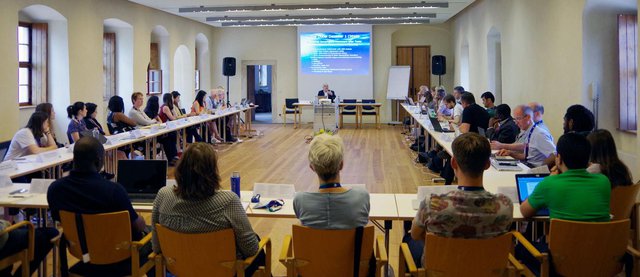
Monday
Monday focused on cyber security. Milton Mueller spoke of the clash between the Internet, a stateless, non-territorial, global phenomenon, and countries, with their national boundaries, laws and regulations. We explored such questions as: How can countries govern a global network within their borders? When everything - hardware, software, sender, receiver, operators, content - originates anywhere on the globe, can you effectively regulate without augmenting the core architecture and principles around which the Internet is built, and without which the Internet will no longer be the Internet?
Full of thought and many unanswered questions, we moved on to Niels ten Oever, who spoke about the complex ways in which Internet protocols affect human rights, and Tatiana Tropina, who explained the current state of affairs around cybersecurity and cybercrime. In the afternoon, we broke into three groups, one for each of the three presenters in the morning. I was with Tatiana, and we discussed in more detail the enormous challenges - economic, social, cultural, technical, logistical - of crime prevention and well as the multiple paradoxes it causes.
“Being from the other side of the world in the Pacific Islands, we face different challenges in relation to the Internet. It was interesting to gain insight into the relevant issues in another part of the world – issues that will surely become more relevant for developing economies in the future."
– Kasek I. Galgal , University of Papua New Guinea, Board Secretary of the Pacific Island Chapter of the Internet Society (EuroSSIG 2016 fellow)
Tuesday
Tuesday was labelled the "technical" day. Without much fuss, Avri Doria plunged us into the world of protocols, standards, codes and RFCs and highlighted the sometimes quite vague wording of policies on Internet governance. Marco Hogewoning introduced us to the numbers world - Jon Postel (a.k.a. pre-1998 IANA), the IETF, the RIR system, and the policy development process. He spoke of IPv6, the challenges of deployment and the rather surly, if I may add, alternatives to it. Keith Drazek topped it all off with an overview of the root server system and the changes the IANA transition will cause to root zone management. The afternoon and evening were filled with lectures on the management of country code and generic top-level domains (ccTLDs and gTLDs) and the challenges of the newly introduced sponsored TLDs. We finished off the day with a tour and dinner at the world-famous Meissen porcelain factory.
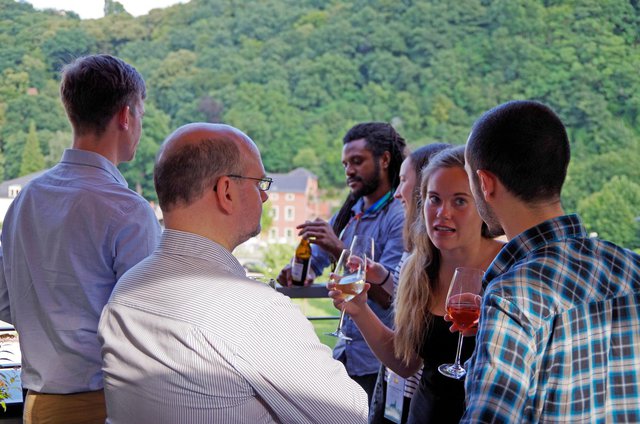
Wednesday
Wednesday covered the business aspects of Internet governance. Robert Pepper spoke of the macroeconomic impacts of ICT, usage differences between nations and regions, as well as projected developments in device type, content type and traffic volume all the way to the advent of the Internet of Things (IoT). Claudia Waldmann and Carsten Schiefner gave the perspectives of an online retailer and an Internet Exchange Point (IXP) respectively. In the afternoon, we broke into three groups, similar to Monday, to get a more detailed information from the speaker of our choosing.
In the evening we completed a practical exercise. When we arrived on Saturday, we were given a problem statement concerning a major cyber attack on the fictional country Zahavia, but originating in the (also fictional) country Erehwyna. Each fellow represented either a government from the UN Security Council, the business sector, the technical community or civil society. We spent several days discussing the problem and debating what seemed like every single word of a proposed resolution. Then we scrapped the resolution entirely and started working on a new one, running late into the night. Luckily, we secured some extra time on Thursday morning, when we at last reached consensus. What a better way to learn of the challenges and opportunities of the multistakeholder approach than to enact it ourselves!
“Listening to various industry leaders talk about topics ranging from the IANA transition to Internet Exchange Points, online human rights issues to TLD operators, made me realise just how many other equally important organisations are involved in ensuring the Internet remains an open and free environment.”
– Al Strachan , RIPE NCC (EuroSSIG 2016 fellow)
Thursday
Thursday, the final day of the official program, began with William Drake discussing existing or potential Internet fragmentation and the challenges it brings to issues such as privacy, data protection and localisation, e-commerce, cyber sovereignty and so on. In an interactive panel, Ayesha Hassan, Avri Doria and Marco Hogewoning debated future challenges of keeping the Internet open and thriving. Lastly, Bertrand de la Chapelle's presentation on the development of diplomacy in the past few centuries left us with an interesting question: If most major international treaties resulted from the conclusion of a major war (the Vienna Convention, the creation of the UN, etc.), and the Internet itself was initiated as a means of the US competing with Russia during the Cold War, how can we, the people of the world, move forward without needing another major catastrophe to push us in the right direction? Is the change from a multilateral to a multistakehodler approach the answer? The general feeling was that only time will tell. Later that evening we were treated to a private rock 'n' roll performance by some of our very own faculty members.
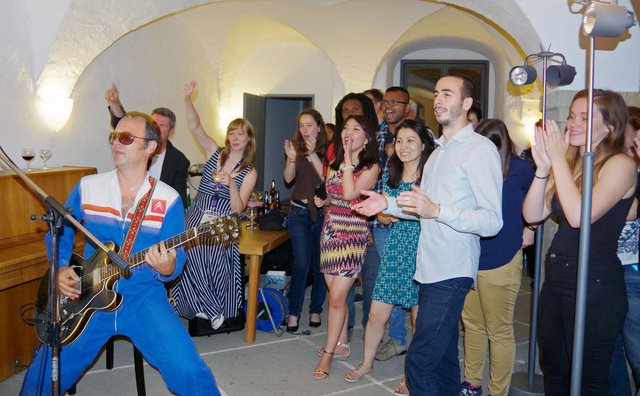
Friday
Friday was a celebration of the 10th anniversary of EuroSSIG, which meant that many alumni joined to celebrate this special occasion. In a touching keynote address, Steve Crocker, the inventor of the RFC series, recalled his time in the team developing the protocols for ARPANET, which laid the foundation for today's Internet. In an interactive panel, Fiona Alexander, Sandro Gaycken, Sorina Teleanu and Christoph Steck debated the future of the Internet and answered questions from the audience on anything from search engine challenges to opportunities for capacity building. We were then treated to a private organ concert in the Meissen Cathedral and a gala dinner, during which everyone sang a song from their home country. And so, a diverse group from all over the world was united under a picturesque Meissen roof by the Internet and melody.
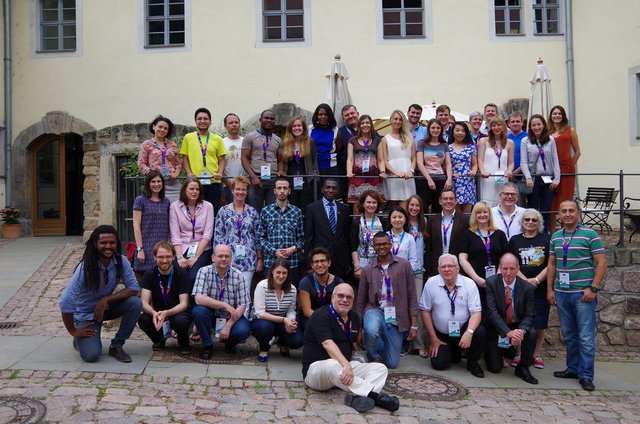
The 2016 EuroSSIG fellows and faculty

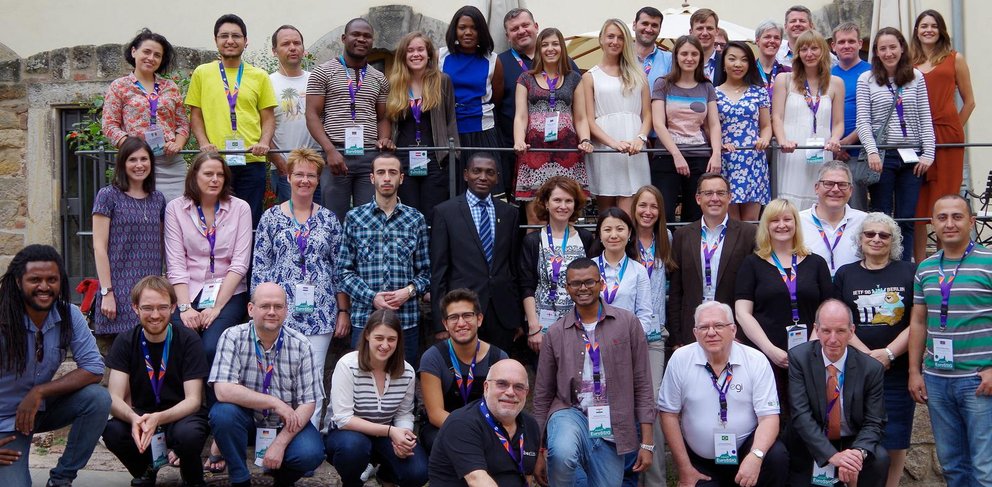
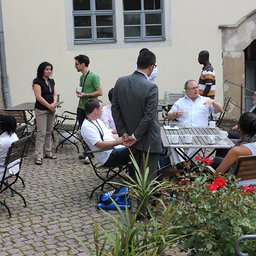


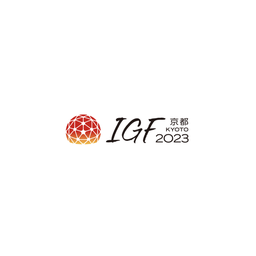
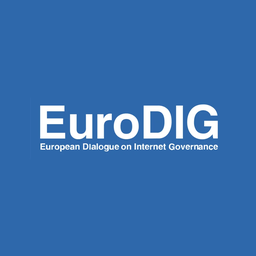
Comments 1
The comments section is closed for articles published more than a year ago. If you'd like to inform us of any issues, please contact us.
Segun Olugbile •
Dear the Editor, Thanks for the concise report. However, while reading through this report, I noticed that the names of the participating countries outside Europe are mentioned. Nigeria is not included in the report. I t is important to correct this error of omission. Nigeria was represented during the recently concluded EUROSSIG 2016 by my humble self. Thanks for the nice report!